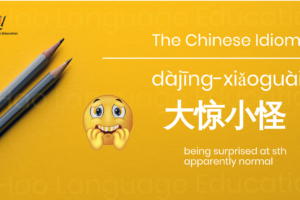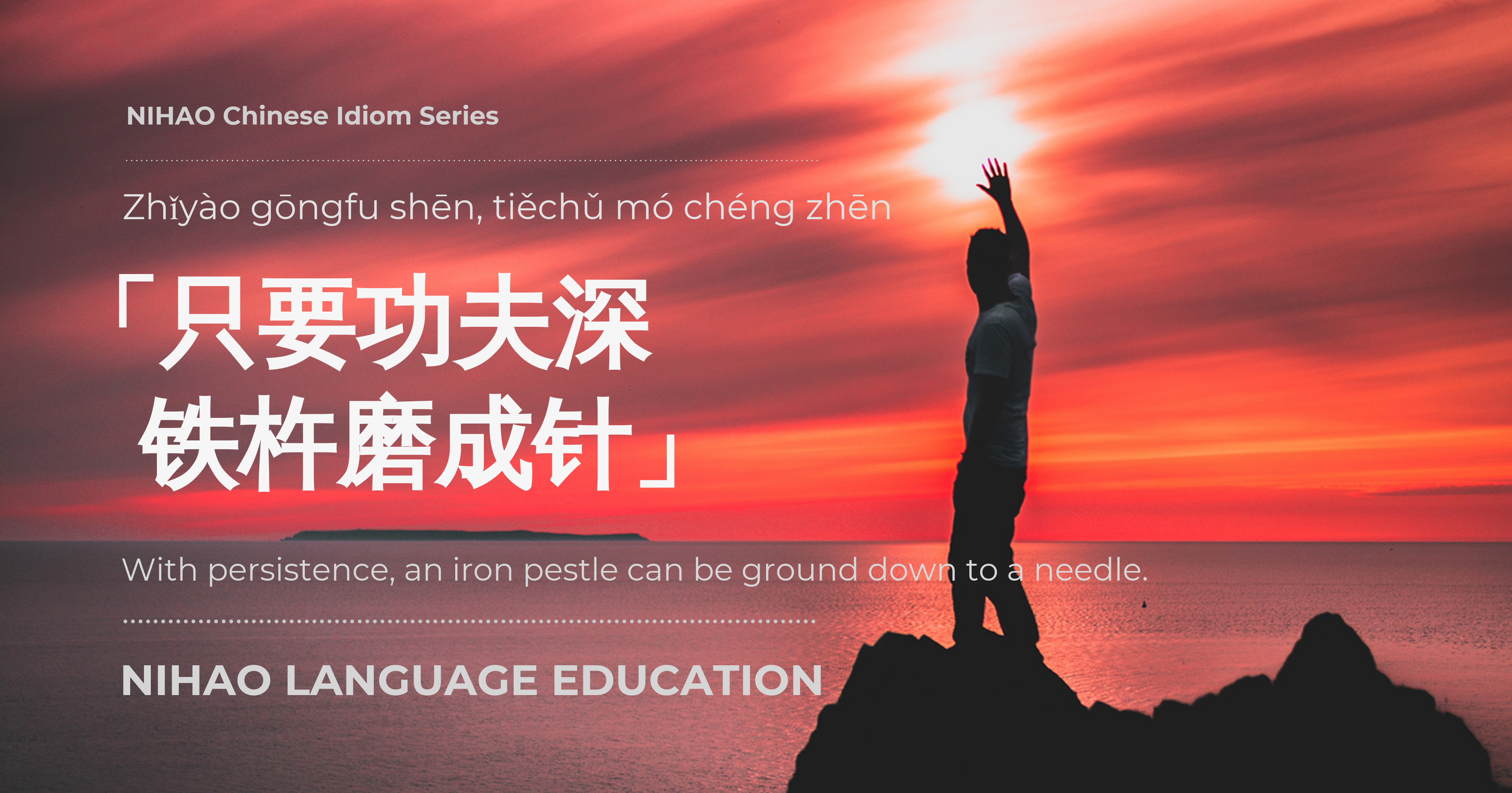只要功夫深,铁杵磨成针
- Posted by NIHAO
- Categories Chinese Idioms
- Date 2020-10-21
只要功夫深,铁杵磨成针
zhǐ yào gōng fu shēn , tiě chǔ mó chéng zhēn
Every language has idioms, sayings, or set phrases. Chinese is no different. In Chinese, an idiom is called 成语 (chéng yŭ) and it’s usually composed of 4 characters.
This idiom comes from Mo Zhen Xi, in Fang yu sheng lan, by Zhu Mu from the Song Dynasty. It is roughly translated as “Hard work pays off” in English.
We have included both the Chinese and the English versions of the story below.
Now, let’s find out what it really means.
Word by word translation of this Chinese idiom
只要zhǐ yào: as long as
只 zhǐ:
only/just/merely
要 yào:
to want
功夫 gōng fu: effort
功 gōng: work (physics)/achievement
夫 fū: manual worker/man
深 shēn: deep/dark(color)
铁 tiě: iron
杵 chǔ: pestle
磨 mó: to grind
成 chéng: to become
针 zhēn: needle
Li Bai (701-762) was a famous poet in the Tang Dynasty of China. 
When he was young, Li Bai was not interested in learning at all, and he often wen out playing.
One day, Li Bai saw an old woman grinding an iron pestle by the river.
He felt so curious that he went over and asked the old woman what she was doing.
It turned out that she was making a needle for her granddaughter to learn embroidery.
Having heard this, Li Bai laughed as most kids would do, because he thought it was a waste of time to grind an iron pestle into a needle and that by the day the needle was made, her granddaughter would have turned into an old woman herself.
However, the old woman told him with confidence: “As long as you work hard enough, an iron pestle can be ground down to a needle.”
Suddenly Li Bai realized that perseverance would help one succeed in everything.
From then on, Li Bai began to study hard and accumulate knowledge. He finally became a great poet!
李白(701-762),是中国唐朝时期著名的诗人。
他小时候对学习很不感兴趣,经常跑到外面玩儿。
一天,李白在河边发现一位老婆婆竟然在磨一根铁棒子。
李白觉得很好奇,就走过去问老婆婆在干什么。
原来老婆婆的孙女要学绣花,她要给孙女做一根绣花针。
他听完以后,像大部分孩子一样哈哈大笑,因为他认为把铁棒子磨成绣花针太浪费时间了,等老婆婆磨好了,她孙女可能也变成老婆婆了。
可是,老婆婆自信地告诉他:“只要功夫深,铁杵磨成针。”
听完老婆婆的回答,李白突然明白了一个道理:无论做什么事情,只要坚持就可能成功。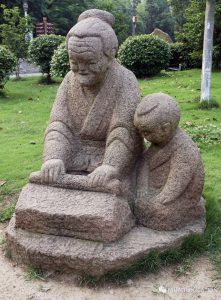
从此,李白就开始努力学习、积累知识,最终成为了一名伟大的诗人。
后来这个故事就演变出“铁杵成针”。比喻只要有决心,肯下功夫,多么难的事也能做成功。
Eventually, this story became the saying “铁杵成针”. This saying tells us that as long as you are determined and commit to hard work, even the hardest tasks can be accomplished.
例句一:
铁杵成针,只要我们肯下功夫,没有办不到的事儿。
Example Sentence One:
Hard work pays off; as long as we put in the effort, there’s nothing we can’t do.
例句二:
铁杵成针,经过五年的刻苦努力,他熟练地掌握了汉语。
Example Sentence Two:
After five years of sincere hard work, he mastered the Chinese language. If you put in the effort, anything can be done.
你也许也喜欢
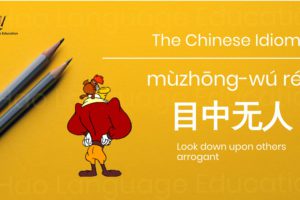
Chinese Idiom目mù中zhōng无wú人rén
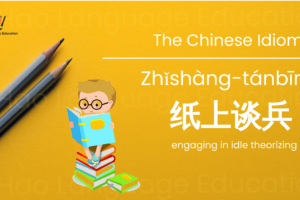
Chinese Idiom纸zhǐ上shàng谈tán兵bīng
